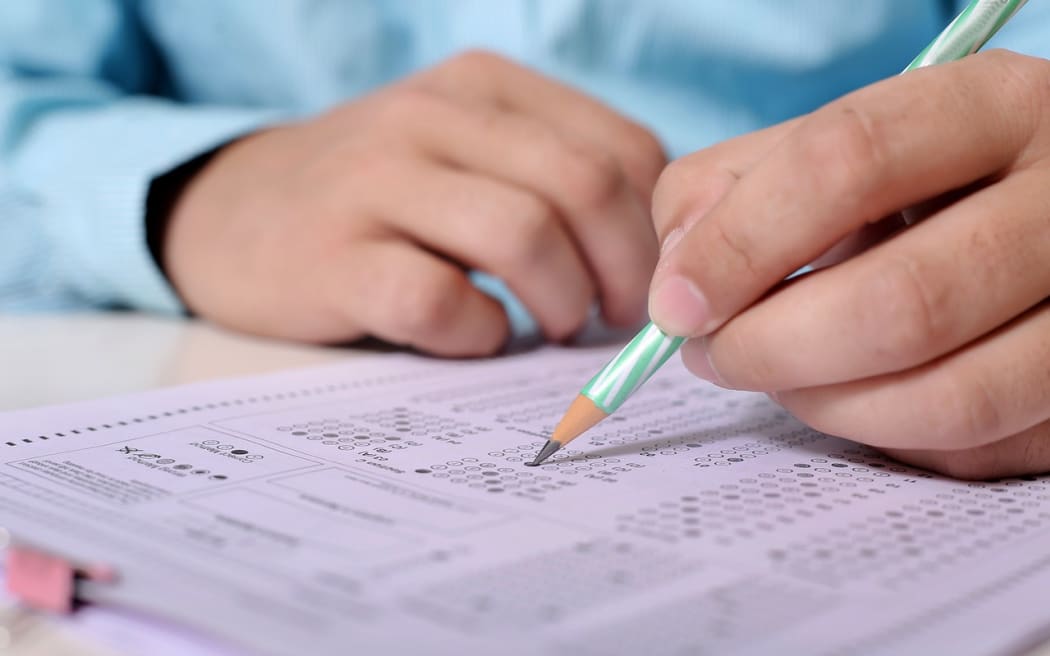
Photo: pixabay
Freaked out about failing an upcoming psychometric test? Relax, says organisational psychology consultant Dave Winsborough.
“The point of doing one of these things is to give you information… it's not like a school test or a university test or a driver's test.”
Winsborough told Afternoons that you can’t ‘fail’ or fake a personality test or a psychometric assessment - but you can learn from one.
“The utility of these things [tests] is for people to become more self-aware. And self-awareness means knowing how I show up in the eyes of other people. We would distinguish between what we'll call your identity, which is the you that you know on the inside, versus your reputation, which is the you that we know from interacting with you. Any good personality test should tell us more about the latter than the former.”

Dave Winsborough Photo: Supplied
Modern psychometric assessments are based on the “big five factors”, which Winborough says are now the gold standard for describing human personality.
“Those five factors are whether you are extroverted, whether you are open to new ideas, whether you are warm and agreeable, whether you're conscientious and whether you're emotionally stable.
“Most people are kind of average. Emotional stability is a continuum – from people who are balanced and calm, to those who are anxious and worried and pay a lot of attention to what could go wrong.
“There has been substantial research with literally millions and millions of human beings. And no matter the language that we use, no matter where you are in the world, or the culture, we find the same basic taxonomy of personalities. Human beings are far more similar than we are different."
While there’s no shortage of online psychometric tests available, Winborough says some are more trustworthy than others (he favours the Deeper Signals test he devised with colleagues in the US and Italy).
“If an assessment is based around those big five factors, and you can access the manual, you know, you're probably going to work with a pretty good test.
“There is just a tonne of these things out there for free; am I an a lark or an owl, am I left brain or right brain? And I would shy well clear of those.”
Winsborough also takes a dim view of the Myers-Briggs tests, which were once very popular but are now “not well regarded by people in my game”.
“It's just not a modern understanding of how personality works. We know there's a lot more behavioural flexibility than is predicted in a in a Myers Briggs’. The Myers Briggs also falls prey to what's called the Barnum effect where you could read any number of people the very same description from one of those boxes and and they're most likely to go ‘that sounds quite a lot like me’.”
Winsborough initially trained as a clinical psychologist, but soon realised that he was more interested in the world of work than sitting in an office listening to people talk about being unhappy.
“I just wanted to work with people in in more positive situations. That led inevitably to working in organisations and inside organisations, one of the most critical things that any leader is going to ask a psychologist is ‘oh, my God, you know, how do I work with this person or that person? Or is why is my boss like this? Or, or how come I didn't get the promotion when other people did?’

Personality or psychometric tests should be used to help understand someone's working style. Photo: Tim Gouw for Unsplash
“Personality is the foundation for understanding being able to give people coherent answers to that.
“Human beings look at and describe other people in in terms of personality traits, and that's why I got particularly interested in it and I was really lucky to be able to work with one of the giants of the personality research world and use his assessment for a long, long time.”
Winsborough says employers should use the information gained from psychometric assessments to work out someone’s working style.
“If, for example, someone scores low on ‘conformability or agreeability, that means they don’t like being told what to do.
“So they’re going to do much better in a job where they've got quite a degree of autonomy.”
While it’s possible to fake a test, Winsborough says we tend to revert back to the temperament that’s easiest so most people don’t try.
“The evidence is that you can shift your personality. If you want it to be conscientiousness or what we would call disciplined… you can push yourself to be like that. But if you get tired or under pressure, it's much harder to sustain.”
The ability to control or adjust how you show up is a measure of social skill, Winsborough says.
“Most assessments have what we call measures of social desirability, so we can tell whether someone's really trying too hard to put on a good impression. And we have measures of reliability, which is that you consistently respond to the same thing.
“Those are useful if you want to be an airline pilot; we like people who are reliable and conscientious, and very happy to do the same series of checks every time they get in the airplane versus someone who's responding is a little more random.
“An assessment is just going to tell you something about how you show up. It is not a sentence, you don't have to behave that way. You can choose to do whatever it is that you want to do.”

